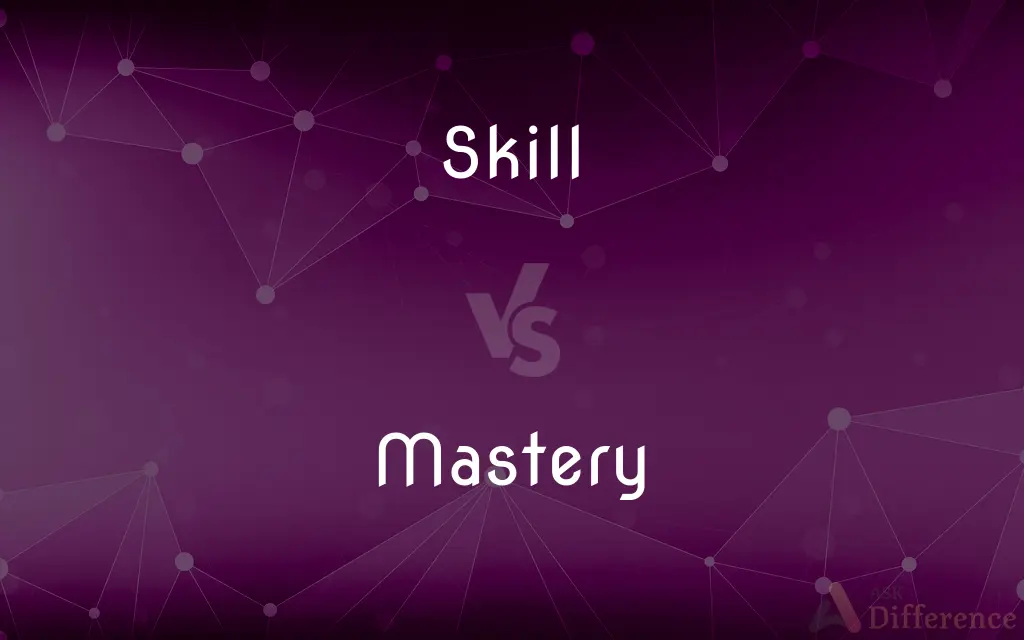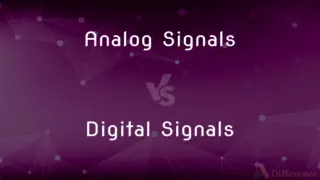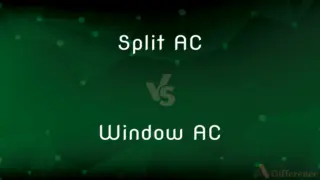Skill vs. Mastery — What's the Difference?
By Tayyaba Rehman & Fiza Rafique — Published on October 7, 2023
Skill is the ability to do something competently, while mastery represents the highest level of skill proficiency, often after significant practice and experience.

Difference Between Skill and Mastery
Table of Contents
ADVERTISEMENT
Key Differences
Skill refers to the ability to perform a task or function competently, often resulting from training or experience. It suggests a learned power of doing something proficiently, whether it's a mental or physical activity. For example, learning how to drive or acquiring the basics of a new language both involve developing skills.
Mastery, on the other hand, goes beyond mere proficiency. It denotes a superior skill level, suggesting complete command or knowledge in a particular subject or activity. It's not just about knowing how to do something, but about excelling in that area, often reflecting deep understanding, expertise, and years of practice.
While one can develop a skill in a relatively short amount of time, achieving mastery generally requires consistent practice, dedication, and time. It's the difference between playing a song on a guitar and being a master guitarist who can create, improvise, and interpret music at an exceptional level.
Furthermore, skill is often a prerequisite to mastery. Before reaching a masterful level in any discipline, one typically needs to acquire and hone specific skills in that area. For instance, a master painter first learns the skills of mixing colors, understanding perspectives, and various brush techniques before they can create masterpieces.
In essence, while both skill and mastery pertain to competence in a particular area, skill is about the learned ability to do something, whereas mastery is the pinnacle of that ability, often characterized by deep expertise and exceptional performance.
ADVERTISEMENT
Comparison Chart
Definition
Ability to perform a task competently.
Highest level of skill proficiency.
Achievement Time
Can be acquired in a shorter time.
Requires significant practice and experience.
Depth
Reflects proficiency.
Reflects deep expertise and command.
Prerequisite
None (basic level).
Skill (advanced level).
Examples
Learning a dance step, basic coding.
Mastering a dance form, creating advanced software.
Compare with Definitions
Skill
Expertise in a specific activity or field.
She showcased her culinary skill at the event.
Mastery
Can one have mastery without skill?
No, mastery is an advanced form of skill and requires foundational skills first.
Skill
A particular talent or aptitude.
His negotiation skill is unmatched.
Mastery
Profound understanding and control.
Mastery in martial arts requires discipline.
Skill
A capability resulting from training.
With skill, he repaired the broken machine.
Mastery
Can skills be innate?
Some people may have natural aptitudes, but skills generally require practice and learning.
Skill
Proficiency, facility, or dexterity that is acquired or developed through training or experience
Painted with great skill.
Mastery
The highest level of skill attainment.
The pianist achieved mastery after years of practice.
Skill
A developed talent or ability
Improved his writing skills.
Mastery
How long does it take to achieve mastery?
Mastery often requires years of dedicated practice and varies depending on the discipline.
Skill
An art, trade, or technique, particularly one requiring use of the hands or body
The skill of glassmaking.
Mastery
Is mastery always related to professional endeavors?
No, mastery can be in any domain, professional, artistic, or personal.
Skill
(Obsolete) A reason; a cause.
Mastery
Is there a universal standard for mastery?
While certain fields have benchmarks, mastery is often subjective and varies by discipline.
Skill
Capacity to do something well; technique, ability. Skills are usually acquired or learned, as opposed to abilities, which are often thought of as innate.
Where did you pick up that skill?
With great skill, she navigated through the tricky passage.
Doing that coaching course not only taught me useful skills on the field, but also some important life skills.
Mastery
Complete command or knowledge in a subject.
His mastery over languages is impressive.
Skill
(obsolete) Discrimination; judgment; propriety; reason; cause.
Mastery
Is every skillful person a master?
No, being skillful is a step toward mastery, but mastery denotes the highest proficiency.
Skill
(obsolete) Knowledge; understanding.
Mastery
Does mastery guarantee success?
While mastery increases the likelihood of success, it doesn't guarantee it due to external factors.
Skill
(obsolete) Display of art; exercise of ability; contrivance; address.
Mastery
Can one measure skill and mastery?
While certain metrics can gauge skill and mastery, much depends on individual and contextual factors.
Skill
Great, excellent.
Mastery
Can a skilled novice achieve mastery faster?
A strong foundational skill can expedite the journey to mastery, but dedicated practice remains essential.
Skill
(transitive) To set apart; separate.
Mastery
Can one teach mastery?
While one can teach skills and techniques, mastery often requires personal commitment, practice, and introspection.
Skill
To discern; have knowledge or understanding; to know how (to).
Mastery
Possession of consummate skill.
Skill
To know; to understand.
Mastery
The status of master or ruler; control
Mastery of the seas.
Skill
(intransitive) To have knowledge or comprehension; discern.
Mastery
Full command of a subject of study
Her mastery of economic theory impressed the professors.
Skill
(intransitive) To have personal or practical knowledge; be versed or practised; be expert or dextrous.
Mastery
The position or authority of a master; dominion; command; supremacy; superiority.
Skill
To make a difference; signify; matter.
Mastery
Superiority in war or competition; victory; triumph; preeminence.
Skill
(video games) To spend acquired points in exchange for skills.
Mastery
The act or process of mastering; the state of having mastered; expertise.
Skill
Discrimination; judgment; propriety; reason; cause.
For great skill is, he prove that he wrought.
Mastery
(obsolete) A contest for superiority.
Skill
Knowledge; understanding.
That by his fellowship he color mightBoth his estate and love from skill of any wight.
Nor want we skill or art.
Mastery
(obsolete) A masterly operation; a feat.
Skill
The familiar knowledge of any art or science, united with readiness and dexterity in execution or performance, or in the application of the art or science to practical purposes; power to discern and execute; ability to perceive and perform; expertness; aptitude; as, the skill of a mathematician, physician, surgeon, mechanic, etc.
Phocion, . . . by his great wisdom and skill at negotiations, diverted Alexander from the conquest of Athens.
Where patience her sweet skill imparts.
Mastery
(obsolete) The philosopher's stone.
Skill
Display of art; exercise of ability; contrivance; address.
Richard . . . by a thousand princely skills, gathering so much corn as if he meant not to return.
Mastery
The position or authority of a master; dominion; command; supremacy; superiority.
If divided by mountains, they will fight for the mastery of the passages of the tops.
Skill
Any particular art.
Learned in one skill, and in another kind of learning unskillful.
Mastery
Superiority in war or competition; victory; triumph; preëminence.
The voice of them that shout for mastery.
Every man that striveth for the mastery is temperate in all things.
O, but to have gulled himHad been a mastery.
Skill
To know; to understand.
To skill the arts of expressing our mind.
Mastery
Contest for superiority.
Skill
To be knowing; to have understanding; to be dexterous in performance.
I can not skill of these thy ways.
Mastery
A masterly operation; a feat.
I will do a maistrie ere I go.
Skill
To make a difference; to signify; to matter; - used impersonally.
What skills it, if a bag of stones or goldAbout thy neck do drown thee?
It skills not talking of it.
Mastery
The philosopher's stone.
Skill
An ability that has been acquired by training
Mastery
The act process of mastering; the state of having mastered.
He could attain to a mastery in all languages.
The learning and mastery of a tongue, being unpleasant in itself, should not be cumbered with other difficulties.
Skill
Ability to produce solutions in some problem domain;
The skill of a well-trained boxer
The sweet science of pugilism
Mastery
Great skillfulness and knowledge of some subject or activity;
A good command of French
Skill
A learned ability to do something.
Her skill in painting is commendable.
Mastery
Power to dominate or defeat;
Mastery of the seas
Skill
Proficiency acquired through practice.
His writing skill improved over the years.
Mastery
The act of mastering or subordinating someone
Mastery
Superior skill or expertise.
The chef's mastery is evident in every dish.
Mastery
Dominance or superiority in a field.
Her mastery in the tech sector is renowned.
Mastery
Can one have multiple skills but mastery in just one?
Yes, individuals can possess various skills but might achieve mastery only in specific areas.
Mastery
Can one lose a skill or mastery over time?
Skills and mastery can diminish without practice or due to factors like age or health.
Mastery
Is skill only about doing tasks?
No, skill encompasses both mental and physical abilities.
Mastery
Are there levels to mastery?
Yes, within the concept of mastery, there can be varying degrees of expertise and command.
Mastery
Is there an end point to mastery?
Mastery is a continual journey. Even masters strive for growth and deeper understanding.
Common Curiosities
Is every skillful person a master?
No, being skillful is a step toward mastery, but mastery denotes the highest proficiency.
How long does it take to achieve mastery?
Mastery often requires years of dedicated practice and varies depending on the discipline.
Is mastery always related to professional endeavors?
No, mastery can be in any domain, professional, artistic, or personal.
Can skills be innate?
Some people may have natural aptitudes, but skills generally require practice and learning.
Is there a universal standard for mastery?
While certain fields have benchmarks, mastery is often subjective and varies by discipline.
Can one have multiple skills but mastery in just one?
Yes, individuals can possess various skills but might achieve mastery only in specific areas.
Can one lose a skill or mastery over time?
Skills and mastery can diminish without practice or due to factors like age or health.
Can one measure skill and mastery?
While certain metrics can gauge skill and mastery, much depends on individual and contextual factors.
Can a skilled novice achieve mastery faster?
A strong foundational skill can expedite the journey to mastery, but dedicated practice remains essential.
Can one have mastery without skill?
No, mastery is an advanced form of skill and requires foundational skills first.
Can one teach mastery?
While one can teach skills and techniques, mastery often requires personal commitment, practice, and introspection.
Is skill only about doing tasks?
No, skill encompasses both mental and physical abilities.
Are there levels to mastery?
Yes, within the concept of mastery, there can be varying degrees of expertise and command.
Is there an end point to mastery?
Mastery is a continual journey. Even masters strive for growth and deeper understanding.
Does mastery guarantee success?
While mastery increases the likelihood of success, it doesn't guarantee it due to external factors.
Share Your Discovery

Previous Comparison
Analog Signals vs. Digital Signals
Next Comparison
Split AC vs. Window ACAuthor Spotlight
Written by
Tayyaba RehmanTayyaba Rehman is a distinguished writer, currently serving as a primary contributor to askdifference.com. As a researcher in semantics and etymology, Tayyaba's passion for the complexity of languages and their distinctions has found a perfect home on the platform. Tayyaba delves into the intricacies of language, distinguishing between commonly confused words and phrases, thereby providing clarity for readers worldwide.
Co-written by
Fiza RafiqueFiza Rafique is a skilled content writer at AskDifference.com, where she meticulously refines and enhances written pieces. Drawing from her vast editorial expertise, Fiza ensures clarity, accuracy, and precision in every article. Passionate about language, she continually seeks to elevate the quality of content for readers worldwide.
















































